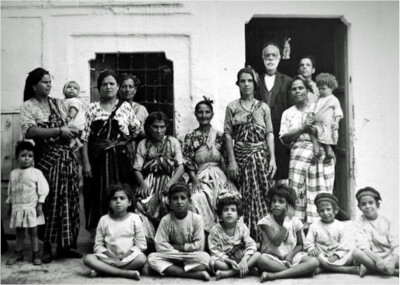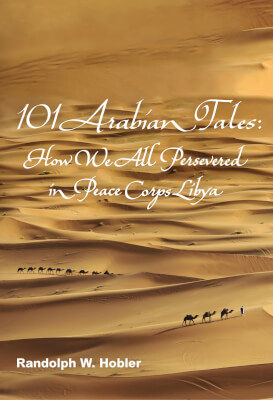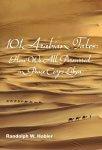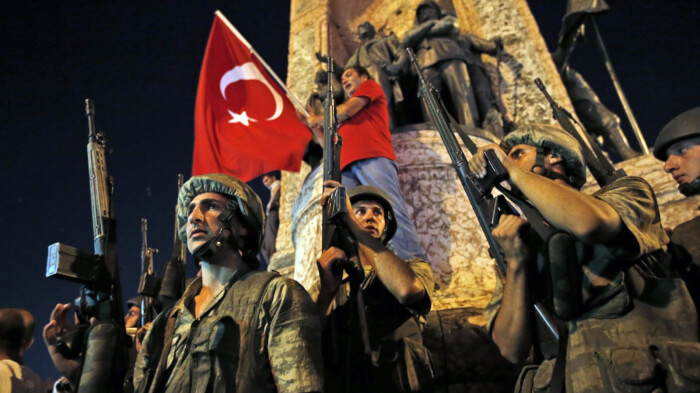![]()
Unique Collective Peace Corps Memoir Published
Randolph W. Hobler has published his collective Peace Corps memoir 101 Arabian Tales: How We All Persevered in Peace Corps Libya. The book is unique in two ways. First, unlike the 1,000-plus Peace Corps individual memoirs published to date, his is a collective memoir. He interviewed 101 of his fellow Libyan Returned Peace Corps volunteers in depth for this effort. Second, the book includes 220 carefully-curated photographs.
Praise
“Randy Hobler has written the best memoir of a Peace Corps experience that I have ever read. His amazingly detailed book instantly grips the reader by putting Libya in its properly rich and unique historical perspective. It’s an unparalleled but eminently readable chronicle of a time and place lost forever.”
—Niels Marquardt

Former Ambassador to Equatorial Guinea, Cameroon, Madagascar and the Union of the Comoros
Peace Corps Volunteer—Zaire and Rwanda
“A magnum opus!” I must remark that the level of detail in terms of time, places and people is remarkable. This book does remind one how living in utter simplicity has beauty and how uncluttered time leads to clarity.”
—Nicholas Craw
Peace Corps Director, 1973—1974
The book has garnered 95% 5-star ratings from Amazon and GoodReads.
The book is available in paperback and Kindle versions from Amazon. More information
About Randolph W. Hobler
Randolph Hobler is a long-time international marketing consultant for 134 companies, including many in the Fortune 500. He has published dozens of businesses, scientific and general articles. He’s the book writer, lyricist and composer for the musical The Spirit of River City, a bio-fantasy about Meredith Wilson. He was a Peace Corps volunteer in Libya, 1968—1969 and is a graduate of Princeton University.

INQUISITIONS AND INCULCATIONS
In repeated discussions, I learned that Libyans—and by extension all Arabs—had no religious problem with the Jews. They claimed they were not anti-Semitic, but rather, anti-Zionist—against the political take-over of Palestine by the Jews. I initially regarded this with great skepticism. It seemed like splitting hairs. That this argument was a dodge, an excuse. After all, for decades the American media had pounded into the American psyche that Arabs were anti-Semitic. That the Arabs hated the Jews. A belief deeply inculcated into American public opinion. Furthermore, I had never even heard this notion of Arabs arguing that they were anti-Zionist rather than anti-Semitic. This Arab opinion was largely suppressed.
My Libyan friends claimed that for many centuries, the Arabs lived peacefully side-by-side with Jews. They said this was proof there was no inherent enmity between the two groups. They said it was only in the years around the establishment of Israel in 1948, and in the turbulent years following, that relations between Arabs and Jews became contentious, and that it was therefore a political issue. This, too, I was skeptical of. However, they seemed sincere and I, being of an open-minded bent, started looking into their claims.

So, I looked at the years from 629 A.D. (establishment of initial Arab power under the prophet Mohammed) to 1948 (the founding of Israel.) The historical fact of the matter is that with some limited exceptions, Jews and Arabs lived together harmoniously for a full 1,319 years.
Jews held positions in all strata of Ottoman society including in finance, in handicrafts such as tannery, large scale commerce, governmental positions, as heads of customs houses, treasurers, secretaries and interpreters. In Tunisia Jews were assigned to be the keeper of the Bey’s jewels and valuable articles. In Libya during this period, there was a thriving Jewish community in Benghazi. In Tripoli in 1941, 25% of the population were Jewish, practicing their faith in no fewer than 44 synagogues. According to Gina Waldman, who was born and raised
in Libya, “My family came from an ancient Jewish community known as the Mizrachim. They had lived in Libya for over 2,000 years.” The first Jews arrived in Cyrene, Libya in the 3rd century BCE.
Family in the Tripoli Jewish Quarter
It is richly ironic that a predominantly Christian country (the U.S.) has expended so much effort to tar the Arabs with enmity towards the Jews when the Jews’ treatment at the hands of Christians has been demonstrably much worse. One could cite hundreds of examples, but besides the Spanish Inquisition, there was an earlier Medieval Inquisition. In 1290 England expelled their Jewish population. Then France expelled their Jewish population in 1306. On August 2, 1492 King Ferdinand and Queen Isabella decreed the Edict of Expulsion of the Jews from Spain. (The very same day, by the by, that Columbus, allowed by the self-same king and queen, left for his famous expedition.) This decree was executed by the notorious inquisitor-general Torquemada. In 1492 Jews were expelled from southern Italy. The Ottomans invited these Jews to their territory. In 1496, the Jews were expelled from Portugal. In that year, Moslem Sultan Bayezid II of the Turkish empire received thousands of Jewish refugees. There were widespread pogroms against the Jews in late 19th-century Europe and of course, there was the Holocaust.
It was only the onset of Zionism that sparked anti-Zionism among Arabs, with the 1948 Israeli-Palestinian War, the Israeli invasion of Egypt in 1956 and more generating enormous animosity in the Arab world, resulting in the elimination of Jews from all Arab countries in the aftermath.
In short, my consciousness was raised, as were most of my fellow PCVs. Exposed to facts of history, systematically suppressed by the U.S. press for decades, our volunteer world-view was permanently changed, better informing our view of the Arab-Israeli conflict for the rest of our lives. An unintended consequence of the Peace Corps.


- The RSF mutiny’s resonance in Sudan: Understanding some of its impacts on regional and global dynamics - September 23, 2023
- Factors Stalling the Peace Process in Sudan - August 28, 2023
- Reviving the Bread-basket Strategy: The Backbone of Sudan’s Recovery - August 10, 2023

























